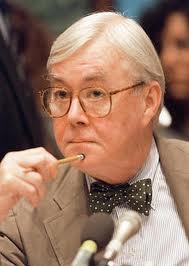
Editor’s note: This op-ed appeared over the weekend in the Huffington Post.
At least three more red states — Texas, North Carolina and Tennessee — will push for school vouchers in the coming months. But the familiar showdown between Republican lawmakers and teachers’ unions masks a more intriguing political development on parental choice: Democrats are increasingly siding with parents.
Count me in the parent camp. I’m a lifelong progressive Democrat, former president of two local teacher unions, and current president of a Florida nonprofit that is the country’s largest provider of tax credit scholarships for low-income students to attend qualified private schools. This year the Florida scholarship will serve more than 50,000 economically disadvantaged students who are mostly of color, and it aligns directly with the core Democratic Party values of social justice and equal opportunity.
For a host of complicated reasons, low-income kids are not generally doing well in traditional public schools. In 2011, according to the National Assessment of Educational Progress, the reading gap nationally between low-income and higher-income fourth-graders was 22 percentage points. Florida has seen encouraging progress with its disadvantaged students, yet startling gaps persist. Last year, 45 percent of low-income third graders scored at grade level or above on the Florida reading test, compared to 77 percent of higher-income students.
One way to combat the challenges faced by students in poverty is to give their parents more options. Affluent parents can buy homes in neighborhoods with preferred school zones, navigate the other public school choices, home school or pay for a private school. But low-income parents don’t have these opportunities. Expanding choice is a way to help level the playing field.
This expansion is not either/or, and it’s not public versus private. Educators understand that different children learn in different ways, and to that end, education is increasingly becoming customized. In Florida, we now have 1.5 million students — about 43 percent of the total — enrolled in something other than traditional neighborhood schools. Last year, there were 341,000 who chose through “open enrollment,” 227,000 who picked choice and magnet programs, 180,000 in charter schools, 203,000 in career academies and 8,000 in full-time virtual instruction. Vouchers and tax-credit scholarships are not an invasive species on this fast-changing landscape, where lines between public and private are blurring. They’re simply two more peas in a public education pod.
That’s one reason the politics are changing.
In Florida, a broad and increasingly bipartisan coalition of citizens and elected officials support the tax credit scholarship, for which 68 percent of the children are black and Hispanic. Wealthy business leaders support it, as do inner-city ministers, Tea Party members and Berkeley professors. In 2010, when the Republican-led Florida Legislature voted overwhelmingly to support a major expansion, the yes votes included nearly half the Democrats, including two-thirds of the Black Caucus and all but two members of the Hispanic Caucus.
In Louisiana, a voucher bill was approved last year with the support of nearly a third of the Democrats in both chambers. A tax credit scholarship bill that is expected to be debated in North Carolina this year is being pushed by a politically progressive and racially diverse parent organization. In New Jersey, Democratic Newark Mayor Cory Booker has teamed up with Republican Gov. Chris Christie to push school reforms that include private options.
The truth is, Democrats have a longer history than Republicans of supporting educational choice.
The late Democratic Sen. Daniel Patrick Moynihan once crafted a tuition tax credit measure with Republican Sen. Bob Packwood that garnered 50 co-sponsors, including Sen. George McGovern and 23 other Democrats. Both McGovern and Sen. Hubert Humphrey ran for president on Democratic platforms that included support for tuition tax credits. In fact, the Democratic Party didn’t abandon its support of public funding for private school choice until the National Education Association gave Jimmy Carter its first-ever presidential endorsement in 1976. With that endorsement, Carter reversed field.
Despite charges to the contrary, school choice is not a right-wing plot to privatize public education. McGovern, Moynihan and Humphrey were not right-wing zealots, and neither are the increasing numbers of modern Democrats who want to give more options to underprivileged and struggling students.
I hope more liberals will join the school choice movement. Poverty, hopelessness and despair are powerful enemies, and our nation’s disadvantaged children need all the allies they can get.


